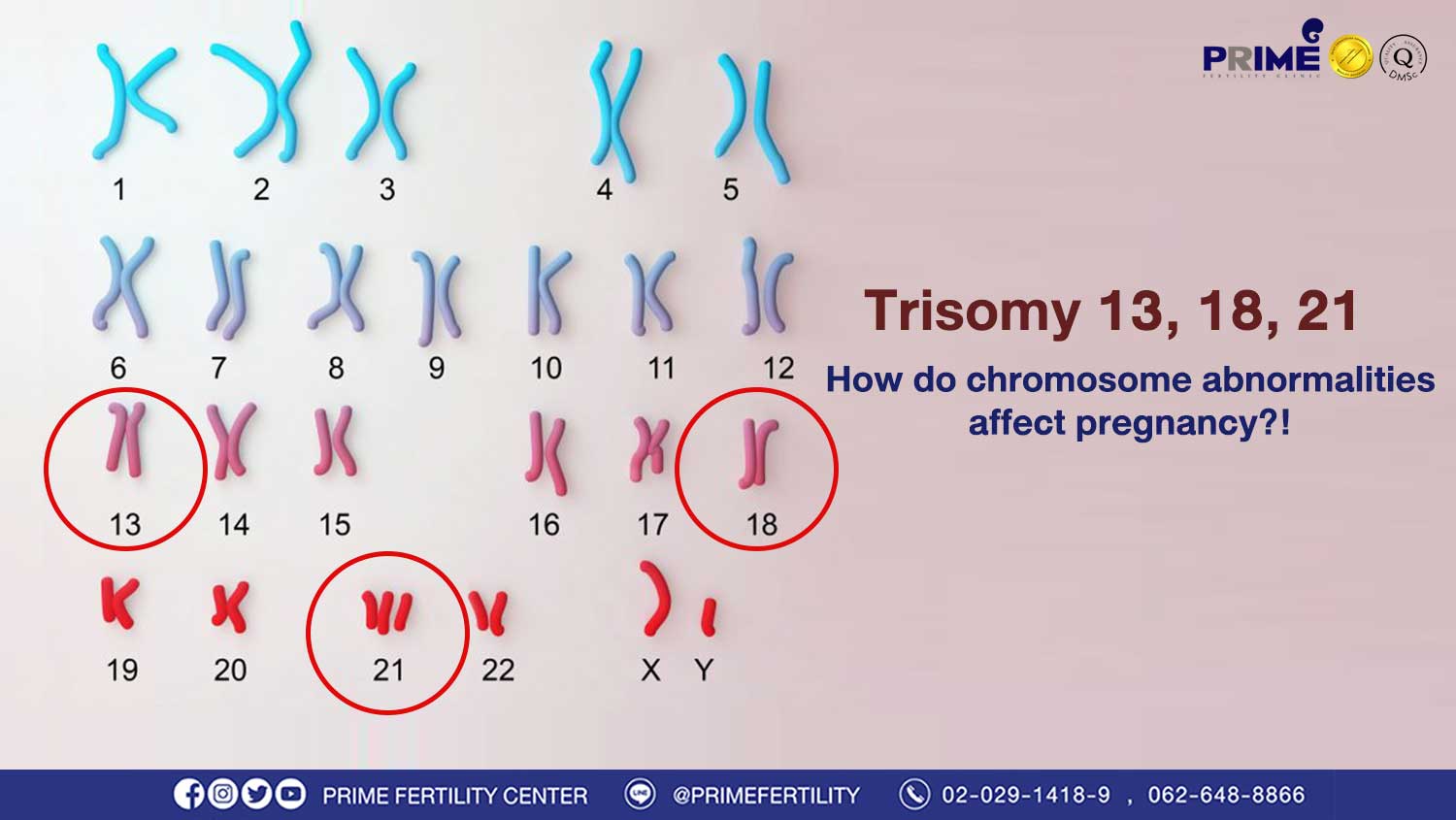In general, people have 23 pairs of chromosomes or a total of 46 chromosomes. Abnormalities of chromosomes can occur in various forms such as trisomy, monosomy, and microdeletion.
These abnormalities are frequently found on 13th, 18th and 21st pairs of chromosomes.
For all 3 pairs of chromosomes, the abnormalities of chromosomes can indicate genetic abnormalities of embryos. This is for the case that a mother sends her embryos for chromosome testing.
Please have a look at this, if 13th, 18th and 21st pair of chromosomes are abnormal, how will it affect a baby?
1. An abnormality of the extra 13th chromosome is called Patau syndrome. (Trisomy 13). It is the cause of cleft lip and cleft palate, microphthalmia, low-set ears, extra fingers or toes (polydactyly), hearing loss, and intellectual disabilities.
2. An abnormality of the extra 18th chromosome is called Edwards syndrome. It is the cause of a small abnormally shaped head, small jaws, low-set ears, cleft lip and cleft palate, overlapping fingers, defects of the lungs, kidneys, and stomach/intestines, and low IQ levels.
3. An abnormality of the extra 21th chromosome is called Down syndrome. It is the cause of a flattened and small head, almond-shaped eyes that slant up, a flattened bridge of the nose, low-set ears, small mouth, atrial septal defect, developmental disabilities and low IQ levels.
For ICSI program or In-vitro Fertilization, it has technology which is called Preimplantation Genetic Testing : PGT. Normally, we will remove embryo cells during blastocyst to identify genetic defects.
We will select only healthy embryos to transfer into the uterus. This method will help reduce the risk of babies’ abnormalities and avoid termination of pregnancy.

